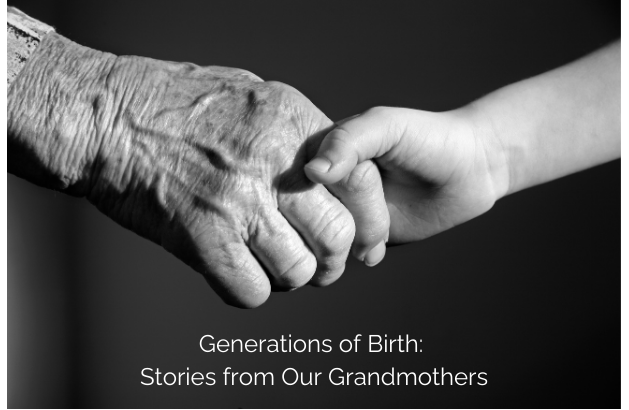
A Grandmother's Birth Story from 1962
Share
In 1962, the experience of childbirth was much different from what we know today. For one grandmother, becoming a mother was both exhilarating and terrifying, shaped by a lack of resources, support, and information. Her firstborn arrived after a difficult labor that left her both physically and emotionally drained.
She recalls the intense fear she felt as she approached the unknowns of childbirth. “I was scared out of my mind,” she admits. In those days, support for new mothers was minimal, and as an Rh-negative mother, she had frequent blood tests, further adding to her anxiety. When she went into labor, she was given pain relief through an IV, but the relief was short-lived. The medicine made her feel terribly sick, and she spent hours in the hospital insisting that she was okay and wanted to go home. When they finally returned home, the nausea struck again. It was a rough start to motherhood, but her partner stepped in to help, even changing the baby’s diaper for the first time.
Naming the baby wasn’t any easier. She chuckles as she remembers, “We could not decide on a name until several days had passed.” The uncertainty, however, wasn’t just about names—it extended to the challenges of navigating motherhood with little help or understanding.
While she was in labor, doctors discovered that the baby was in a breech position, with his feet coming first. He had to be manually turned, a procedure known as external cephalic version. She didn’t have much understanding of the medical details, but she recalls the procedure as “dreadful.” Later, she remembers the mention of forceps, suggesting they were used to help deliver the baby after the turning.
After five days in the hospital, she was finally sent home, still dealing with the lingering effects of the pain medication and unable to rest properly due to the constant vomiting. The postpartum period was grueling, and breastfeeding was a challenge that didn’t last long. “It was a failure,” she says simply, acknowledging the difficulty of combining her sickness with the lack of resources for new mothers at the time.
Despite these challenges, she found strength within herself and in her partner. “He was a big help,” she says. “We did okay on our own.” However, there were struggles with family support. Her sister, who was supposed to help her, turned out to be more needy than helpful, and left after just one day. Her mother, too, wasn’t much assistance. In the face of it all, she persevered, relying on what little information she had and the medical advice available at the time.
Motherhood, for her, was never easy. It was difficult and often scary, particularly with a lack of resources and support. But through it all, she did her best. “Dr. Spock was all I had,” she recalls of the few resources available to mothers at the time. With no internet or affordable baby care books, she relied on what little information she could find—and did what she could to care for her child.
Her journey to motherhood was marked by raw vulnerability, resilience, and a deep love for her child, all of which remain a powerful part of her legacy. Her story, though far from perfect, is a testament to the strength of mothers everywhere—especially those who have to navigate the unknowns without the resources we now take for granted.
